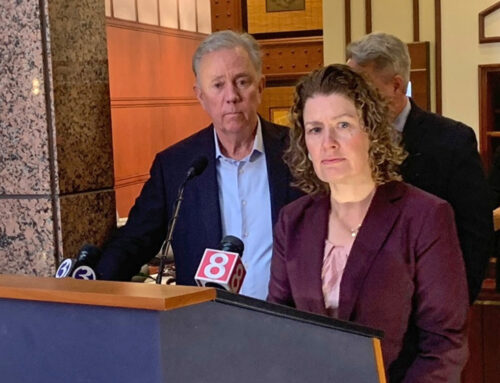Instagram’s new AI video tools: a boon for brands & creators or Meta’s AI testing grounds?
December 20, 2024
Instagram head Adam Mosseri on Thursday teased new gen AI video features. Could this represent the beginning of more advanced platform-integrated AI capabilities for creators and brands?
Instagram is preparing to roll out generative AI editing tools in the new year, enabling creators to transform the look of their videos using simple text prompts.
Powered by Meta’s generative AI model Movie Gen – unveiled in October – the new features are designed to simplify video editing by allowing users to seamlessly alter nearly any aspect of a clip – swapping out backgrounds, adding realistic-looking accessories and objects into the video or even animating a creator’s face.
In a video shared Thursday, Instagram chief Adam Mosseri previewed the tools, demonstrating a smattering of backdrops and appearances generated on the fly. In one clip, Mosseri morphs into a puppet, while in another, he dons a sleek leather jacket.
“A lot of you make amazing content that makes Instagram what it is, and we want to give you more tools to help realize your ideas,” Mosseri says in the clip. “And you should be able to do anything you want with your videos. You should be able to change your outfit, or change the context in which you’re sitting, or add a chain – whatever you can think of.”
Responses from users have been mixed, evidenced by comments on Mosseri’s post.
“With great power comes great responsibility. I will say, though, this does look like a lot of fun,” wrote an animator with over 225,000 followers who goes by the Instagram handle @jtmadness.
Other users expressed outright disapproval. @secondnaturedesignsmv, a landscape design creator with nearly 77,000 followers, said: “So let me get this straight. You’re enabling us to be less authentic and use illusions to create a fake reality? This is wrong on so many levels.”
Want to go deeper? Ask The Drum
The Movie Gen model was announced this fall, with Meta touting the tech’s ability to depict realistic human motion in AI-generated content.
Today’s announcement comes just over a week after OpenAI announced the public debut of its highly anticipated video generation platform Sora. The launch came with much fanfare, and OpenAI was forced to restrict signups amid surging demand.
But unlike OpenAI’s Sora and other rivals like Adobe’s Firefly, Meta’s approach appears focused on integrating AI directly into its social platforms, where the technology could easily reach millions of creators. It’s a potentially powerful differentiator.
Advertisement
Of course, questions remain about how well tools like Movie Gen and Sora perform once they’re widely available. Mosseri’s teaser clips look polished, but early previews of rival models have occasionally fallen short of expectations in real-world use. A common hiccup has been the accurate portrayal of human limbs and fingers.
For Instagram’s vast user base of 2 billion monthly active users, the arrival of AI-powered video editing could mark a significant leap in creative possibilities – and, perhaps, a new frontier in content creation. Brands, too, may be eying the forthcoming features with eagerness.
“We’ll definitely see creators using this to produce more cinematic and personalized content – and, if brands gain access, it will be an exciting opportunity to reintroduce how we consume user-generated content,” says Hillary Applegate, founder and CEO of Digital HQ, a digital marketing agency.
Advertisement
For brands, Movie Gen could enable “more interactive campaigns and contests that could allow brands to involve customers in the creative process,” she predicts. Furthermore, she highlights opportunities for more immersive product demos and and virtual try-ons, establishing new ways for brands to showcase products and improve the customer experience.
Lance Wolder, the head of strategy at digital advertising firm PadSquad, says that Movie Gen is “undeniably intriguing” and says he’s excited by the possibility of “[enhancing] brand assets beyond just talking-head content. Can it make visuals more dynamic or intelligently replace unwanted backgrounds in a way that elevates production value?”
Nonetheless, Wolder wonders how truly innovative the features will prove to be. At this stage, he says, “It feels like the next evolution of a filter – exciting but perhaps not groundbreaking.”
To win with creators and brands, he suggests, Instagram would do well to go further and develop AI that can “address other pain points in content production, [as] many creators still rely on third-party apps like CapCut for editing features that should be native to the platform.”
Suggested newsletters for you
Daily Briefing
Catch up on the most important stories of the day, curated by our editorial team.
Weekly Marketing
Stay up to date with a curated digest of the most important marketing stories and expert insights from our global team.
The Drum Insider
Learn how to pitch to our editors and get published on The Drum.
But perhaps Meta’s objective isn’t to get creators and brands attached to these Movie Gen Instagram features, but rather to use these foundational tools as a springboard for developing more advanced capabilities.
At least, that’s Yashin Manraj’s perspective. Manraj is the CEO of tech automation company Pvotal Technologies. “The end goal is not to make this a useful tool, but rather to limit the time users are spending on other AI enhancement tools and to collect data on what users are doing with so [Meta] can improve [its own offerings],” he says.
Another goal in launching Movie Gen, Manraj suspects, is more blatantly commercial: to develop generative AI product placements or more organic branded messaging that will appeal to consumers who are turned off by explicit advertisements.
Meta has yet to confirm an exact launch date for the new AI features.
Search
RECENT PRESS RELEASES
Related Post




